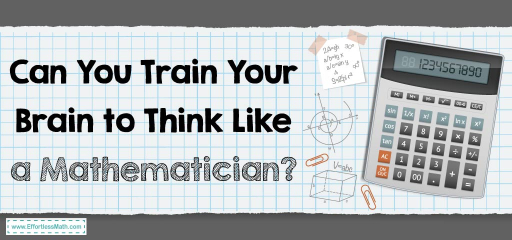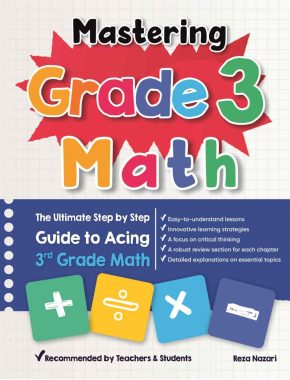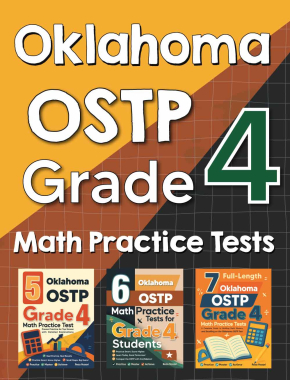Can You Train Your Brain to Think Like a Mathematician?

The quick answer before we start is yes, you can. Scientists have proven that math skills aren’t something you’re born with, but something you build. When you practice math, your brain literally changes its structure within weeks. But what about the whole “I’m just not a math person” excuse? Science says it’s nonsense.
We’ve all heard someone say “I’m just not good at math,” like it’s a personality trait. In Western culture, we’ve somehow made it acceptable to be bad at math. But here’s the thing – while other cultures treat math incompetence as embarrassing, we’ve turned it into a badge of honor. So, that’s not just wrong – it’s holding millions of people back.
Your Brain Changes When You Do Math
Scientists used brain scans to study what happens when people learn math. The results shocked them: 87% of studies found that math practice creates real, physical changes in your brain. We’re talking about new connections, thicker brain regions, and completely reorganized neural networks.
In 2021, researchers discovered something wild. They studied teenagers who stopped taking math classes and found their brains actually changed – and not for the better. The parts of their brains responsible for reasoning and learning showed reduced activity.
But what’s even crazier is that scientists could predict these students’ math performance 19 months later just by looking at their brain scans.
What really blew researchers’ minds is that professional mathematicians use completely different brain circuits than the rest of us. Even though some of them don’t use language areas at all, they can activate certain regions that process space and numbers – some ancient brain circuits that every human has.
Real Truth About Math Disabilities
Yes, dyscalculia exists. About 5-8% of students have this learning disability that makes arithmetic difficult. But here’s the real problem – we diagnose it way too often. One study tracked kids with dyscalculia for four years. Only 65% still had the diagnosis by the end. That means over a third were misdiagnosed – and they just needed better teaching.
Even better news is that having dyscalculia doesn’t mean you can’t do math. Arithmetic is just one small part of mathematical thinking. Many people with dyscalculia excel at geometry, logic puzzles, or pattern recognition. They prove that struggling with times tables doesn’t mean you lack a “math brain.”
How Gaming Can Train Your Math Brain
Also, there is something many would expect to hear – modern video games secretly teach math. Gaming platforms, including advanced casinos using Inclave systems, force players to calculate probabilities, recognize patterns, and make strategic decisions – all fundamental math skills.
When you play such games, you’re unconsciously working with probability distributions, expected values, and risk assessment. Your brain strengthens the same neural pathways it uses for formal math. Players develop intuitive statistical thinking without realizing they’re doing math at all.
How Your Brain Learns Math
When you practice math problems, mental calculations, or even simple arithmetic, your brain forms new connections and actually grows new brain cells. But it’s not some slow process that takes years – it happens pretty fast.
Scientists gave people just eight weeks of arithmetic practice and scanned their brains. The results were shocking. Their hippocampus (the brain’s memory center) lit up with new activity. So their brains developed new connections between memory and reasoning areas. Eight weeks – that’s all it took.
The changes follow predictable patterns. First, your frontal regions work overtime as you struggle with new concepts. Then, as you improve, activity turns to more efficient brain regions. Your brain literally rewires itself for mathematical thinking.
Practical Ways to Build Your Math Brain
Struggle Is Good
Your brain grows most when you struggle with problems, not when someone gives you the answer. Teachers who provide too much help actually harm learning. That “aha!” moment when you finally solve a tough problem is when your brain forms new connections.
Look for Patterns Everywhere
Math is really about pattern recognition. Train yourself to spot patterns in daily life – in music rhythms, traffic flow, even your grocery bills. Every pattern you notice strengthens your mathematical thinking skills.
Start Where You Are
You don’t need to tackle calculus on day one. Start with puzzles, games, or problems just slightly above your comfort level. Your brain responds best to progressive challenge, not overwhelming difficulty.
Why London Taxi Drivers Have Super Brains
London cabbies must memorize 25,000 streets and 20,000 landmarks to get their license. Brain scans show that their hippocampus actually grows larger from this training. The same thing happens with math training – your brain physically changes to meet the challenge.
But that’s proving something very important – adult brains can dramatically reshape themselves. Just as taxi drivers build navigation circuits, you can build mathematical circuits. Age doesn’t matter. Your brain remains plastic throughout life.
You’re Never Too Old to Start
If you still think you missed your chance to develop math skills – think again. Adults who start math training show the same brain changes as children – sometimes even faster.
One study found that adults doing math activities increased their brain-derived neurotrophic factor (BDNF), a protein that helps grow new neural connections.
The trick is starting simple and building up. Adults who begin with basic concepts and gradually increase difficulty show measurable brain changes within 6-8 weeks. Plus, regular math practice reduces dementia risk by more than 25%. Your brain stays sharper when you keep challenging it with mathematical thinking.
Beating Math Anxiety
About 20% of adults have math anxiety – their brains literally panic when they see numbers. Brain scans show their fear centers activate, blocking access to reasoning circuits. No wonder they can’t think straight during math tests.
The good news is that you can completely reverse math anxiety in 12-16 weeks. Gradual exposure combined with relaxation techniques literally rewires your fear response.
Once the anxiety fades, your natural math abilities emerge. The fear isn’t permanent – it’s just a bad habit your brain learned.
You Already Think Mathematically
Watch a basketball player sink a three-pointer. So, they just calculated trajectory, force, and angle without conscious thought. Musicians count complex rhythms, while cooks adjust recipe proportions. Artists use geometric principles. You already do math – you just don’t call it math.
This changes everything about learning. When teachers connect math to activities you already do well, your brain says “Oh, I know this!” Instead of building from scratch, you’re strengthening existing neural pathways.
Science Is Clear
Researchers studied twins to understand how much of math ability comes from genes versus experience. The verdict is that experience and training account for 60% of math achievement. Genetics only explains 40% – and even genetic predispositions can improve with some practice.
Brain scans of professional mathematicians revealed the final proof – they use the same basic number and space circuits everyone has. They’ve just strengthened these circuits through practice. You have the same hardware – you just need to install the software.
Start Today
The neuroscience has been clear – anyone can develop mathematical thinking. Your brain will physically change, growing new connections and strengthening existing ones. Whether you’re 8 or 80, whether you have math anxiety or dyscalculia, whether you think you’re “not a math person” – none of that matters.
What’s really important is starting. So, pick up a puzzle, play a strategy game, calculate the tip without your phone. Every small mathematical problem changes your brain.
Frequently Asked Questions
How do you calculate the area of a circle?
To calculate the area of a circle, you use the formula \(A = \pi r^2\), where \(A\) represents the area, \(\pi\) (approximately 3.14159) is a constant, and \(r\) is the radius of the circle. This formula shows the power of mathematical thinking: by learning and applying such formulas, you can solve problems and understand the world better. This is a clear example of how practicing math can change your brain, making it easier to handle various mathematical concepts over time. For younger learners eager to start their math journey, exploring resources like Top 10 Grade 3 Math Books Inspiring Young Mathematicians To Explore can be very helpful.
How do you calculate the area and perimeter of different shapes?
Calculating the area and perimeter of different shapes involves specific formulas depending on the shape in question. For rectangles, the area is calculated by multiplying length by width, and the perimeter is the sum of all sides (2*(length + width)). For circles, use the formula area = π * radius^2 and perimeter (circumference) = 2 * π * radius. These mathematical practices can strengthen your brain’s ability to handle complex problems, much like a mathematician, by consistently applying these formulas to various problems. For a broader range of shapes and more detailed explanations, consider exploring resources such as how to find the area and perimeter of rectangles.
How do you find the area of a triangle?
To find the area of a triangle, you simply use the formula: Area = 1/2 * base * height. Here, the “base” refers to any one side of the triangle, and the “height” is the perpendicular distance from the chosen base to the opposite vertex. This method shows that mathematical concepts can be mastered through practice, much like training your brain to think more like a mathematician, as discussed in the concept of brain adaptability when learning math. For practice problems and more detailed explanations, check out this resource on how to find the area of a triangle. This will help reinforce the concept and improve your mathematical thinking skills.
Related to This Article
More math articles
- Top 10 4th Grade OST Math Practice Questions
- A Guide to the Different Types of Continuity in Functions
- The Ultimate PERT Math Formula Cheat Sheet
- How to Unravel the Ties: Relationships Between Decimal Place Values
- Multiplying 2-Digit by 2-Digit Numbers for 4th Grade
- How to Evaluate Integers Raised to Rational Exponents
- 8th Grade STAAR Math FREE Sample Practice Questions
- Top Calculator for the PSAT 10 Math Test: Quick Review
- Grade 3 Math: Quadrilaterals
- How to Solve Integers Inequalities involving Absolute Values?





































What people say about "Can You Train Your Brain to Think Like a Mathematician? - Effortless Math: We Help Students Learn to LOVE Mathematics"?
No one replied yet.